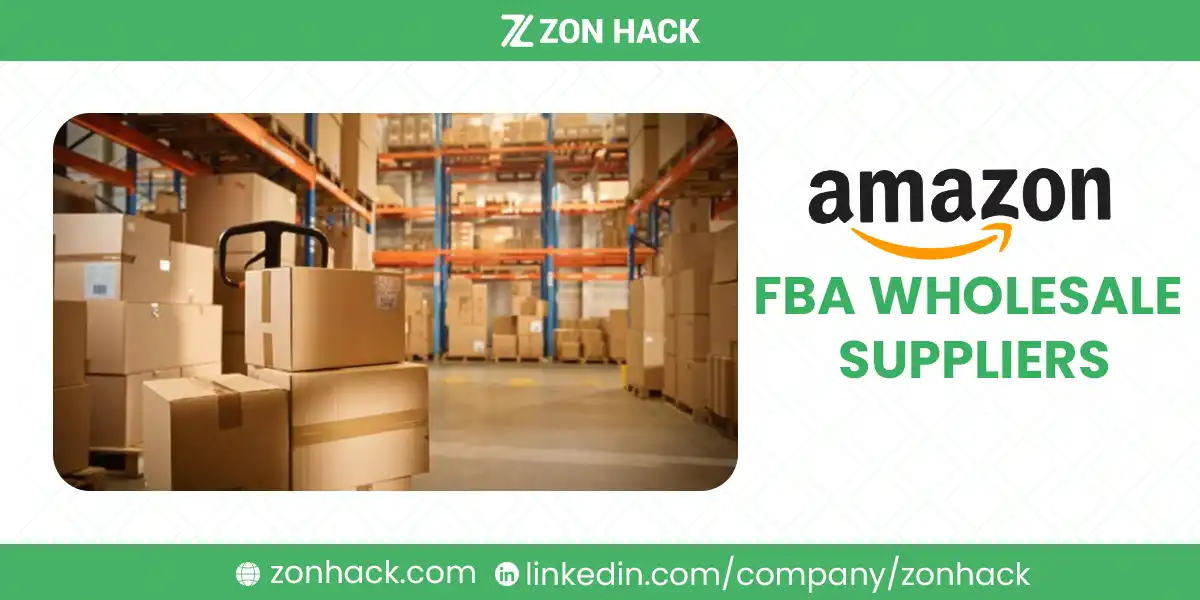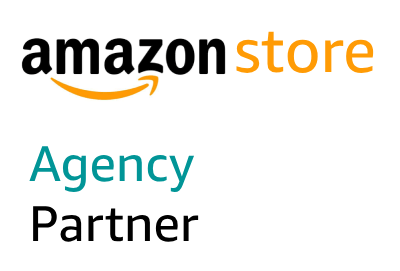Finding reliable Amazon FBA wholesale suppliers is one of the most crucial steps for launching and scaling a successful FBA business. Whether you’re starting out or looking to expand, sourcing products from legitimate and trusted suppliers can be the difference between steady profits and ongoing headaches.
In this guide, we’ll explore effective strategies for finding wholesale suppliers, how to verify them, and best practices for building long-term relationships—all backed by data and industry insights.
Why Is It Important to Find the Right Wholesale Supplier for Amazon FBA?
Your Amazon FBA business is only as strong as your supply chain. A reliable wholesale supplier ensures consistent product availability, competitive pricing, and good quality products that meet Amazon’s standards. Working with the wrong supplier, however, can lead to stock shortages, low margins, and even account suspensions if product quality doesn’t meet expectations.
A legitimate wholesale supplier provides brand-new products in bulk at a lower price, allowing you to compete effectively in the marketplace while maintaining healthy profit margins.
What Are the Best Methods to Find Amazon FBA Wholesale Suppliers?
- Through Brand Websites: One of the most direct ways to source wholesale products is to go directly to the brand’s official website. Most brands list their authorized distributors or wholesalers, which means you are dealing with legitimate and trusted suppliers.
- Visit the brand’s website and look for sections labeled “Distributors,” “Authorized Sellers,” or “Wholesale Inquiries.”
- Use this contact information to reach out to the distributor for pricing and account details.
This method offers a more secure and vetted option compared to randomly searching for suppliers. For instance, brands like Hasbro or Sony often publish a list of trusted wholesalers on their official sites, ensuring product authenticity and compliance with Amazon’s FBA requirements.
2. Google Wholesale Suppliers for Amazon FBA
Google remains one of the most powerful tools for finding wholesale suppliers. However, it’s important to use the right search tactics:
- Use terms like “[Brand Name] wholesaler” or “[Product Category] distributor” to narrow down your results.
- Add additional modifiers like “bulk supplier” or “wholesale distributor USA” to filter out non-relevant or retail-based results.
For example, if you’re selling electronics, search for terms like “wholesale electronics distributor USA.” Google’s advanced search features (using quotes, minus signs, etc.) can help you eliminate irrelevant results and focus on legitimate suppliers.
3. Use Google Maps to Find Local Wholesale Suppliers
Google Maps isn’t just for directions. You can use it to identify local wholesale suppliers that might not appear in traditional Google search results. Here’s how:
- Search for terms like “[Category] wholesaler near me” or “[Product Type] distributor” in Google Maps.
- Zoom into specific industrial areas where suppliers typically operate.
- Use Street View to inspect areas around major distributor locations.
This method is particularly useful for finding local suppliers, which can reduce shipping costs and lead times. Local wholesalers may also be more willing to negotiate on MOQ (Minimum Order Quantities), offering greater flexibility for growing businesses.
4. Attend Trade Shows
Yes, attending trade shows is one of the best ways to establish relationships with suppliers. These events allow you to meet distributors and manufacturers face-to-face, see products firsthand, and negotiate deals directly.
How to Find Trade Shows:
- Websites like WholesaleCentral and ExpoDatabase list upcoming trade shows based on product categories.
- Industry-specific trade shows like the ASD Market Week in Las Vegas are great for meeting general merchandise suppliers.
Many suppliers you meet at trade shows are not readily found online, which gives you an exclusive advantage.
5. Use Tools Like Jungle Scout and Seller Assistant App
Jungle Scout and Seller Assistant App are indispensable tools for Amazon FBA sellers. They help you not only discover suppliers but also analyze competitors, track supplier trends, and compare product data.
For instance:
- Jungle Scout provides access to databases with vetted suppliers from around the world, showing you key details like minimum order quantities and pricing.
- Seller Assistant App offers a supplier database and allows you to automate outreach, ensuring timely communication and better deals.
These tools save you hours of manual work by giving you data-backed recommendations on suppliers.
Other Proven Ways to Find Amazon FBA Wholesale Suppliers
- Trade Directories
Online directories like WholesaleCentral, ThomasNet, or Worldwide Brands feature comprehensive listings of vetted suppliers across various industries. These directories often list contact details, product ranges, and minimum order quantities (MOQs).
- Alibaba Wholesale Section
Alibaba is one of the largest B2B marketplaces, but the wholesale section is particularly useful for Amazon sellers. Filter suppliers by categories like verified or trade assurance to ensure legitimacy.
- SpyFu for Competitor Analysis
SpyFu is an excellent tool for identifying competitors’ suppliers. You can use it to analyze other sellers’ websites or product listings and trace back their supply chain to find potential wholesalers.
- Trade Association Memberships
Joining industry-specific trade associations often gives you access to exclusive supplier directories. Many associations offer vetted and pre-approved suppliers that meet certain industry standards.
- LinkedIn for B2B Networking
LinkedIn is not just for job hunting—it’s a powerful B2B tool. Search for wholesale suppliers or category managers on LinkedIn, and directly contact individuals responsible for wholesale accounts at various companies.
- Amazon Vendor Central
If you’re an Amazon vendor, you can use Vendor Central to source directly from Amazon-approved suppliers. This platform is great for large-scale businesses that want access to high-quality wholesalers vetted by Amazon.
- Referrals from Other Sellers
Reach out to other Amazon sellers in your niche for supplier recommendations. Many sellers are willing to share contacts, especially if you aren’t in direct competition.
- Contacting Manufacturers Directly
Contact manufacturers to ask for a list of their authorized distributors or request a wholesale account directly. Many manufacturers have special programs for Amazon FBA sellers.
- Third-Party Wholesale Platforms
Platforms like SaleHoo and Inventory Source specialize in connecting retailers with vetted wholesale suppliers. These platforms offer an extra layer of security and often include dropshipping options as well.
- Amazon Product Research Tools
Tools like Helium 10 allow you to track your competitors’ inventory, identify top sellers, and trace back their supply chain to find potential wholesalers for the same products.
- Facebook Groups
There are numerous Facebook groups dedicated to Amazon FBA and wholesale sourcing. Join groups related to your niche or FBA in general, and network with others who may recommend suppliers or offer insights.
- Yellow Pages and Business Directories
While it may sound outdated, Yellow Pages and other local business directories still serve as a valuable resource for finding regional suppliers or distributors.
- Customs Import Data
You can access import/export data from platforms like ImportGenius or Panjiva, which track shipments coming into the U.S. This data often includes the supplier’s information, helping you identify international wholesalers.
- Reverse Image Search
If you find a product you want to sell but can’t identify its supplier, use a reverse image search on Google to trace where it’s being sold. This can often lead you to the product’s original wholesaler.
- eBay for Bulk Purchases
eBay is typically seen as a consumer marketplace, but you can find wholesale lots listed by distributors looking to offload inventory. Some sellers even specialize in bulk quantities for businesses. It’s a good alternative to find smaller suppliers with excess stock who may not be listed on traditional directories.
How Should I Vet Amazon FBA Wholesale Suppliers?
Once you’ve found potential suppliers, vetting them is critical to avoid bad deals. Here’s how:
1. Checking Legitimacy
Always ensure your supplier is legitimate by:
- Verifying business licenses or certifications.
- Checking third-party reviews and ratings.
- Asking for referrals from other businesses.
2. Requesting Product Samples
Before committing to a bulk order, always request samples to evaluate product quality. Inspect the packaging, labeling, and the product itself for any flaws or signs of counterfeiting.
3. Analyzing Supplier Terms
Compare the payment terms and delivery schedules. Are they willing to offer Net 30 or Net 60 terms? What are their policies on returns, product damage, or refunds?
How Should I Contact Wholesale Suppliers?
Effective communication with suppliers is key to establishing long-term partnerships. When reaching out, keep your message clear, concise, and professional:
- Subject Line: Keep it short, e.g., “Inquiry About Wholesale Accounts.”
- Body: Introduce yourself and your business briefly. Be direct about what you’re looking for (price lists, product catalogs, etc.).
- Details: Include your company name, business details, and the estimated volume of products you want to purchase.
Frequently Asked Questions
What Are Some Red Flags to Watch Out for When Vetting Suppliers?
Red flags include lack of contact information, upfront payment demands without any product samples, and poor online reviews. Always check for trust badges, licenses, and third-party verifications before making large orders.
How Do I Negotiate Better Terms with Suppliers?
Start by ordering small batches to build trust, and as your business scales, negotiate for better pricing tiers. Suppliers are more willing to offer discounts and flexible terms once they see consistent orders from you.
Bottom Line
Finding the right Amazon FBA wholesale supplier is an ongoing process that involves research, vetting, and negotiation. By combining methods like Google search, attending trade shows, and using tools like Jungle Scout, you can build a reliable supply chain that fuels your business’s growth. Whether you’re a seasoned seller or just starting out, choosing the right supplier can give you a competitive edge in the ever-evolving FBA marketplace.
For long-term success, always focus on building relationships with your suppliers. A strong partnership can lead to exclusive deals, priority restocking, and better pricing, all of which help you stay ahead in a competitive market.




